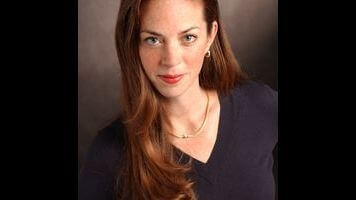Marie Benedict became intrigued with Albert Einstein’s first wife, Mileva Marić, while helping her son write a report on a kids’ book about the creator of the world’s most famous equation. A line in Who Was Albert Einstein? about how Marić had also been a physicist inspired Benedict to do more research, which led her to the debate among scientists about what role Einstein’s wife might have played in the development of the theory of relativity. Benedict, who has written several other works of historical fiction including The Map Thief and Brigid Of Kildare under the name Heather Terrell, imagined the couple working together to unlock the secrets of the universe. But while The Other Einstein has a strong start, it loses its spark as quickly as the marriage it focuses on.
The events of The Other Einstein take place between 1896, when Marić and Einstein met while studying physics in Zurich, and their divorce in 1914, so Einstein’s often-covered role in World War II and the founding of Israel have no place in the narrative. Instead the book is a deeply personal tale told entirely from Mileva’s perspective. The early chapters are the strongest, painting an extremely relatable portrait of a woman’s struggle to succeed in the male-dominated world of physics. When Mileva discovers in Einstein a partner in science and romance, she describes herself as feeling lost. “Lost as in directions, lost from myself, lost to him.”
Benedict creates a dark character in Einstein. While he and Mileva work closely together on the series of 1905 papers that would make Einstein famous, he erases her name from the published work. He swiftly relegates Mileva to traditional womanly roles of cooking, cleaning, and entertaining, and he has an affair with his first cousin, who would become his second wife. Benedict diligently researched the history of the times and the couple, but a bit of creative license would have helped brighten the narrative as Mileva’s personality fades with the passion she and Einstein shared. By halfway through the book she’s mostly complaining about how hard and unjust her life is. The result is a sort of fictional version of Jane Hawking’s Travelling To Infinity: My Life With Stephen, an honest but fairly bleak look at the sacrifices another woman made to support a brilliant scientist.
One promising area of Benedict’s narrative that could have benefited from expansion is Mileva’s friendship with Helene Kaufler, who she meets at a home for Eastern European women studying at Zurich universities. Helene, Mileva, and two other students make a pact to not let men get in the way of their academic pursuits or friendships. But much like Mileva, Helene also abandons her intellectual pursuits for what turns out to be an unhappy marriage. Learning just a little bit more about her would have added power to their parallel narratives. It also would have been nice to have some perspective on whether the other Zurich students held to the pact or at least were more satisfied with their choices. Instead the only woman shown to be capable of loving both science and a man is Marie Curie, who helps inspire Mileva to finally leave Albert by showing her the life she might have had with a more supportive husband who was willing to share burdens and even reprioritize his own work to help her.
It’s a shame The Other Einstein isn’t better because it’s so relevant. The story may be set a century ago, but the struggles Mileva faces when it comes to trying to have a family and a serious career or being the only woman in an advanced physics class are far from problems of the past. Curie was the first woman to win a Nobel Prize, and Benedict argues that Mileva should have joined those ranks, but few women have since: All of the prizes given out this year went to men. Benedict’s work ends up a plea for the great contributions of women to move out of fiction.
Purchasing The Other Einstein via Amazon helps support The A.V. Club.















![HBO teases new Euphoria, Larry David, and much more in 2026 sizzle reel [Updated]](https://img.pastemagazine.com/wp-content/avuploads/2025/12/12100344/MixCollage-12-Dec-2025-09-56-AM-9137.jpg)

























